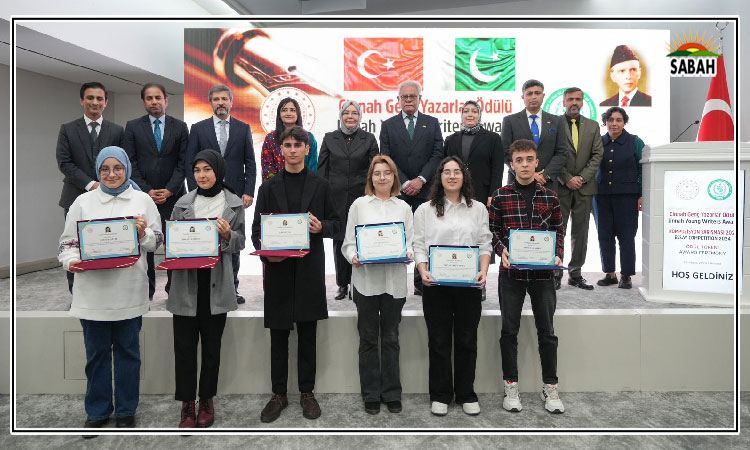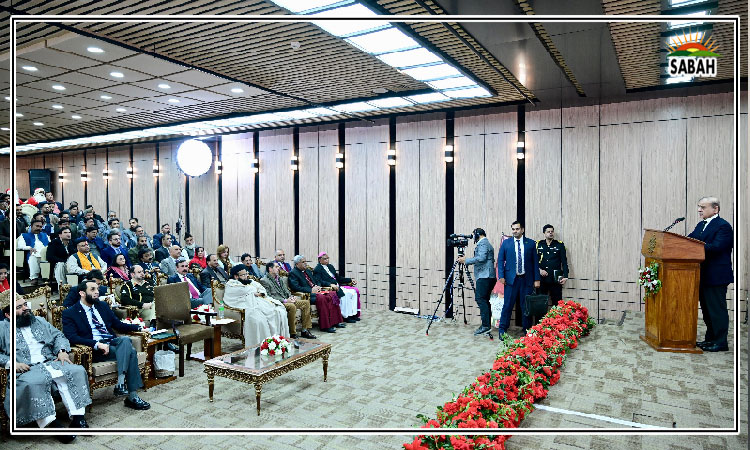China is here to stay in Pakistan… Imtiaz Gul
To the context of the new-found warmth in the US-Pakistan relations with the visit of the high, multi-agency delegation from Washington, the message from Beijing is loud and clear: we are here to stay in Pakistan without influencing its decision-making or meddling in its internal affairs.
Pakistans distinct shift away from China is visible like never before. FM Bilawal Bhutto Zardaris four visits to Washington followed by a high-level US delegation led by Derek Chollet, the Counselor of the US Department of State, underscores the renewed urge for engagement.
Is this a source of concern for the Chinese leadership?
Certainly not! Instead it inflames the desire to double up diplomatic and economic initiatives.
A synthesis of recent discussions both private and extracted from public forums is worth considering in this context.
Firstly, China expects that Pakistans relations with other countries dont expand at the cost of Sino-Pak relations. This is a bond that exists between the peoples of China and Pakistan and has little to do with any political person or party.
Our sole objective is Pakistans political stability and economic progress. We will, as friend, oppose any malign influence meant to disrupt or undermine the Sino-Pakistan friendship, is the message out of Beijing. This relationship transcends buildings, dams, roads and bridges.
Nong Rong, the former ambassador Chinese ambassador in Pakistan, has been elevated to the level of a deputy foreign minister. His predecessor Sung Wei Dong as well as former deputy Lijian Zhao also enjoy similar influential Asia-focused positions in the Chinese ministry of foreign affairs. That should be seen as a signal for an elevated level of engagement with Pakistan.
Secondly, taking care of the basic governance issues is the exclusive responsibility of the central and provincial government. Even prioritisation of projects is the job of Pakistani officials.
In this context, Chinese officials and business executives mention several power plants, Thar coal exploitation, new highways, upcoming Gwadar International Airport, Orange Line, the 950km Matiari-Lahore High-Voltage Transmission Line, vocational training institute at Gwadar, etc as benchmarks for the time-tested friendship.
Despite this, detractors are turning unaddressed simmering socio-economic issues in places such as Gwadar and extended Balochistan into exploitable fault-lines. Haq Do Tehreek by Maulana Hidayatur Rehman in Gwadar is one such ploy that Chinese suspect is being used to malign China and CPEC.
How can China be held responsible if civil, military authorities and politicians fail in addressing the problems resonated by Haq Do Tehreek; many Chinese are involved in multiple projects across Pakistan?
Why should we be held responsible if short-sighted Pakistani leaders and bureaucracy acted recklessly with little knack for long-term planning and efficient execution?
The only way to prevent this is to genuinely and urgently resolve basic governance issues, Chinese official argue.
Thirdly, if the US can be a positive factor vis a vis Pakistan, we will welcome it because that creates a win-win for all. But Beijing will strongly oppose any attempt to drive wedge between Islamabad and Beijing. We must all resist any move aimed at steering Pakistan away from China through unfair geo-political maneuvers or economic pressures.
This reiteration obviously stems from the way former Army Chief General Qamar Bajwa attempted to pull Pakistan away from China in an apparent attempt to assuage American concerns. This also generated an unprecedented element of distrust however miniscule among the Chinese leadership which had been alarmed over the negative vibes that they discerned in GHQ under Bajwa.
Fourthly, Afghanistan remains a primary concern in Beijing as far as security and counterterrorism is concerned. Yet, it hopes all regional stakeholders, Russia and the US can synergise their positions on the war-battered country. But Afghanistan must not be allowed to turn in to a breeding ground for proxy terrorism detrimental to the interests of neighbouring countries, sounds the warning.
We should remember: Chinese by nature dont bluster, are not emotional, and are extremely measured. They dont say things straight in your face out of deference. This is a civilisational trait. But in September 2021 they had gone wary of Bjawas duplicity. Even they used words negative signals from GHQ instead of calling him duplicitous. Why should they then uncover their intent in an amorphous situation defined by alignment with the US?
Chinese also wonder if Pakistan has already become an instrument of the American Asia-Pacific Policy originally floated by President Obama as the Asia Pivot policy.
What are the conditions accompanying the resolve to improve and strengthen the US-Pakistan relations?
Regardless, though, China is determined to push its economic connectivity via the Belt and Road Initiative, backed up by President Xi Jinpings latest conceptual endeavour i.e. the Global Security Initiative. It symbolises the Chinese quest for peaceful co-existence and economic cooperation.
Taking cognizance of increasing polarisation across the globe, Xi urges nations to adapt to the drastically shifting global environment and to approach the complex and interconnected security concerns with a cooperative mutually win-win mindset.
It appears even the Chinese government is waiting for the political mist to clear in Pakistan before reenergising its economic initiatives into the next level. But there is no stepping back from our iron brother [Pakistan] under any circumstances.
Courtesy The Express Tribune












